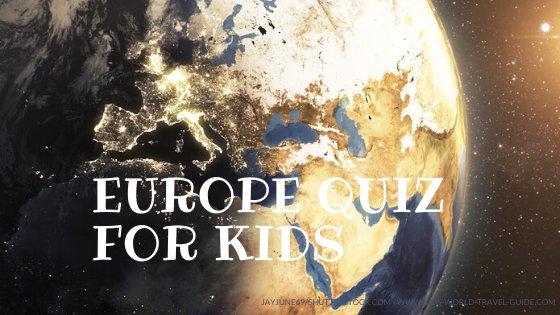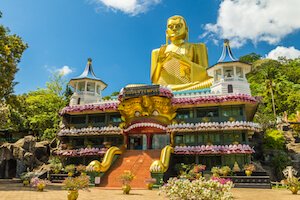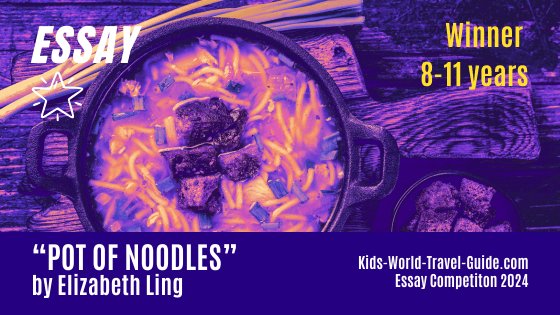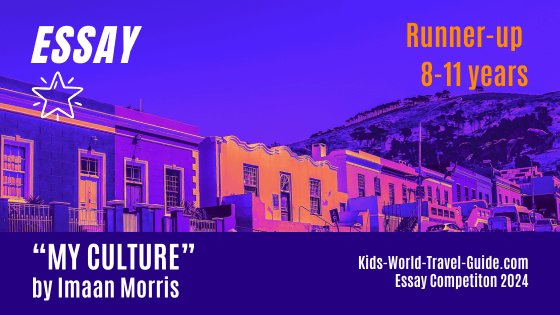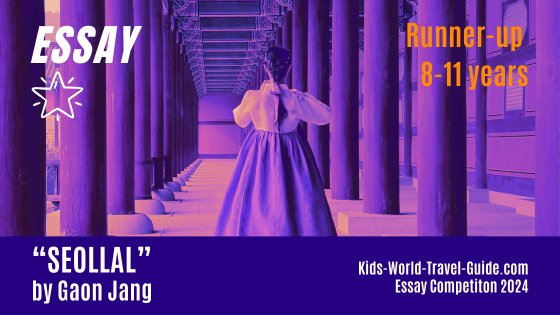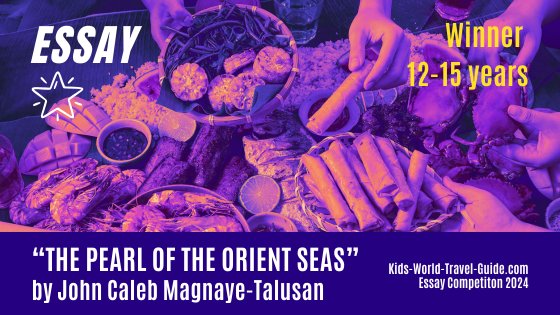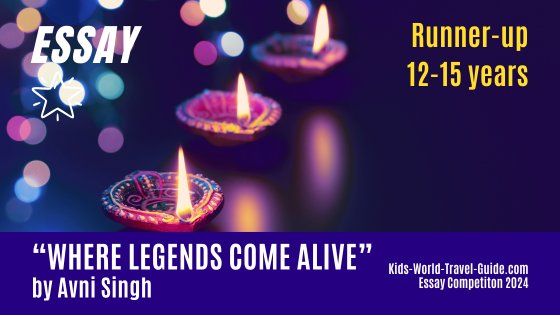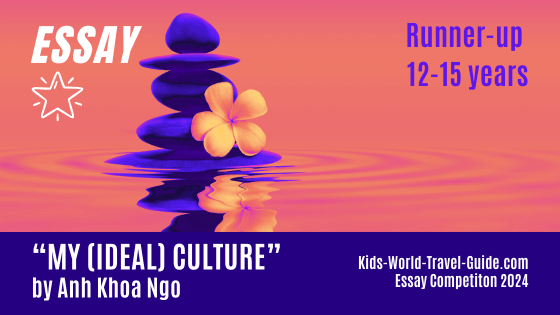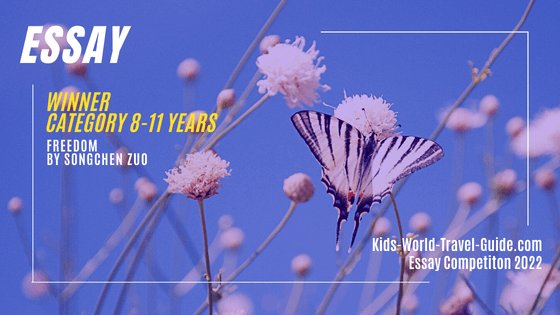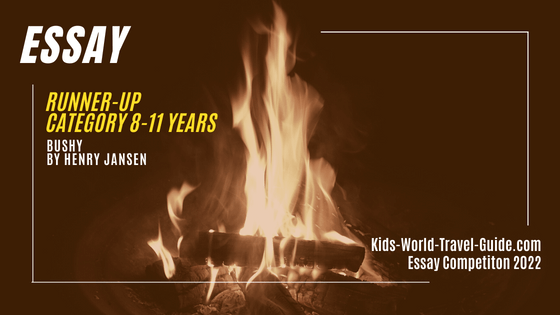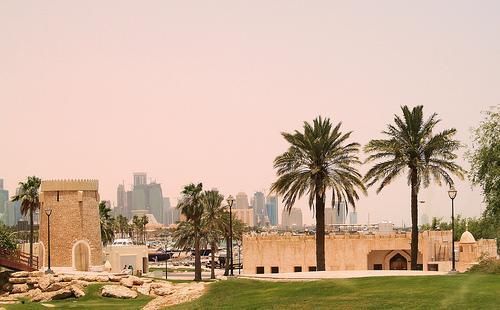- Homepage
- Senior 2024 - Merit: Krygystan
The culture of Kyrgyzstan through the centuries
Essay Writing Competition 2024
Category: 12-15 years
- Commendation -

Senior category: Commendation
The culture of Kyrgyzstan through the centuries by Zhibek Duishenkulova
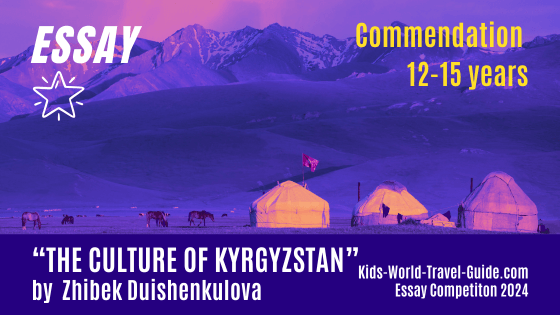
The culture of Kyrgyzstan through the centuries
Cultural identity is not just about where you live or how you speak. It's all about your culture: traditions, customs, language, and even how you look at the world. For me, the culture of Kyrgyzstan is a big part of who I am.
My country is located in the heart of Central Asia, our people were already in the 3rd century BC, and we have a very rich history, which includes ancient traditions, and what has come to us already in the modern world.
Kyrgyzstan is famous for its nomadic traditions. Our ancestors were nomads, and this greatly influenced the lifestyle and worldview of the people. To this day, our people continue to roam. For example, every year with the onset of summer, we wander into the mountains and use a yurt for this.
The yurt is a traditional dwelling of Kyrgyz nomads, having a round shape and consisting of a wooden frame covered with felt. Yurts are easily disassembled and assembled, which allows nomads to move in search of pastures. Inside the yurt there are different areas for sleeping and storing things.
We love nature very much, and this is reflected in our attitude towards the earth, mountains and rivers. For us, mountains are not just a part of the landscape, they are holy places and the meaning of our life, it is in the mountains that our people find their peace and tranquility, therefore we protect and honor. It is also considered in Kyrgyz culture that a person should live in harmony with nature, take care of it and respect it.
We also have many traditional holidays that strengthen ours, family and communities. For example, we celebrate the Nooruz holiday - this is our holiday, which symbolizes the arrival of spring and the beginning of the new year according to the solar calendar, but for us Kyrgyz.
This is not just a holiday, but also a moment when all the relatives gather To have fun, play traditional games and cook traditional dishes. Usually our mothers and grandmothers cook a festive dish all night - Sumolok, which needs to be mixed all night, and add seven small stones to it, if someone gets one of the stones, then you need to make a wish.
And also we often play different games, but there is a game that cannot be imagined in Nooruz and this is equestrian games, namely Kok-Boru, men divided into teams of eight people, on horseback fighting for the carcass of a goat, and having taken possession of it, they must throw it into the opponent's goal, for which points are given.
I really like celebrating Nooruz, when I celebrate it, with my family I feel like I'm going back to the time of my ancestors and realize that our culture is one of the best on earth. Our language and oral folk art also play an important role in shaping my cultural identity.
As a child, I went to my grandmother very often, we loved to chat about everything, and I very often asked my grandmother to tell me many many fairy tales or stories. And she often told me about the epic "Manas". This is an ancient epic of our people, which tells about the brave warrior Manas and his exploits for his homeland. These stories have always fascinated me and aroused a sense of pride, because they teach goodness, honor and justice. Manas defends his homeland and land from all enemies.
I am very glad that I grew up with such examples. These statements not only remind me of the past, but also teach me how to appreciate my homeland and culture and be a patriot. In the modern world, despite globalisation, I see how my culture continues to grow and adapt. We also embrace new ideas and technologies, but at the same time we try to preserve our traditions that have been passed down to us from generation to generation.
This makes me proud, because I understand that I am part of this dynamic culture, combining ancient roots and modern trends.
In the Age category 12-15 years, Zhibek's insightful essay is commended. Zhibek's "Culture" essay teaches us that we indeed can combine old traditions with modern trends as both are part of our constantly evolving culture. Well done!
Zhibek attends V.I. Lenin School Bakai-Ata in Kyrgyzstan. Kyrgyz is the home language. English is taught as an additional language.
Popular Pages
Competition Winners 2024
Competition Winners 2024
Competition Winners 2023
Competition Winners 2022
Christmas Special Pages
Recent Articles
-
Canada Facts for Kids: Geography, People, Animals
Feb 23, 26 09:29 AM
Canada facts for kids in one place: population, capital Ottawa, languages, landforms, geosuperlatives, animals and top attractions - ideal for school projects. -
Festivals in China: Lanterns, Dragons & Mooncakes
Feb 20, 26 07:22 AM
Ready for a celebration? Explore festivals in china, from Chinese New Year and lantern riddles to dragon boat races, mooncakes, and winter solstice treats. -
South Korea Facts for Kids: Temples, Tigers and K-pop
Feb 18, 26 03:22 AM
Ready to travel? Our South Korea Facts tour Seoul, Busan and Jeju with palaces, wildlife (tigers!), K-pop, Hangul and kimchi - great for school projects -
New Year New Hopes | Malaysia | Essays 2024 | Merit Award
Feb 17, 26 06:00 AM
New Year, New Hopes, And a Plate Full of Tradition. This Lunar New Year essay won a Merit Award in the Kids World Travel Guide writing competition 2024 -
Chinese New Year 2026 | Facts for Kids | Lunar New Year | Fire Horse
Feb 13, 26 10:44 AM
Happy Chinese New Year! 2026 is the Year of the Horse! Read our Lunar New Year facts for children & learn about Chinese New Year traditions, food and customs -
Chinese New Year Quiz for Kids | Lunar New Year Quiz | 2026 Geography
Feb 12, 26 06:04 AM
Our Chinese New Year Quiz for Kids will provide fun facts and fun trivia about the Lunar New Year celebrations
Back from 'The culture of Kyrgyzstan' to Essay Competition Winners Listing
Return to Kids-World-Travel-Guide Homepage
More about Countries and Territories in Asia
 Indonesia
Indonesia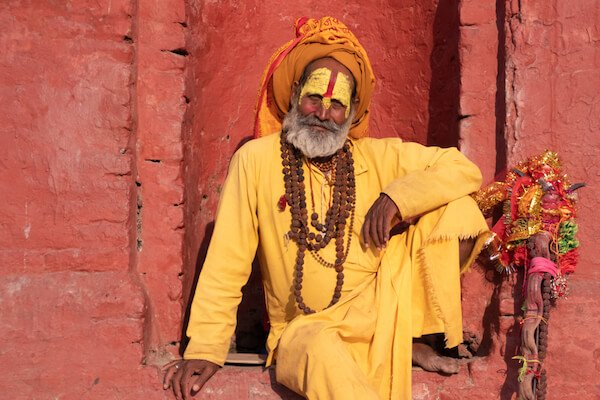 Nepal
Nepal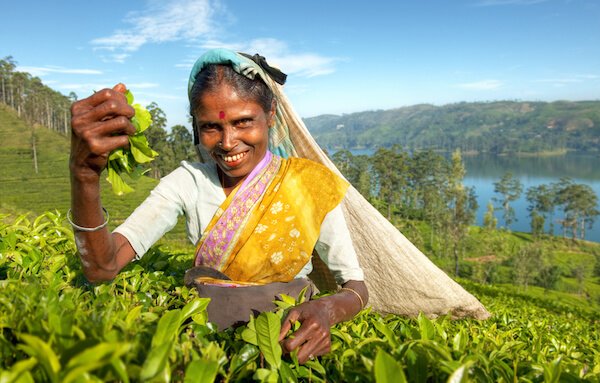 Sri Lanka
Sri Lanka Thailand
ThailandLike what you read?




